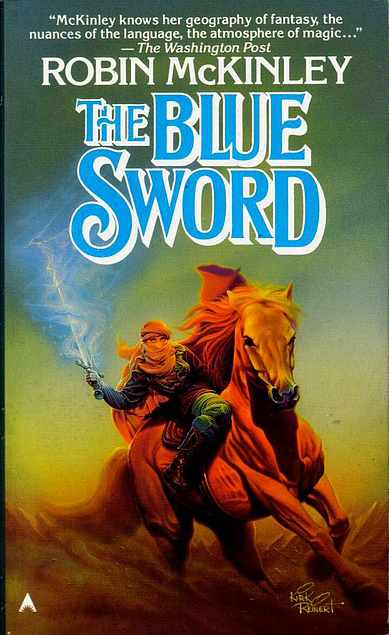I have been a fan of Mary Stewart's romantic thrillers since I was in high school, nabbing my mother's copies off the shelves. I haven't picked them up for years but seeing that they are on Kindle for a low price made me go looking for my own paperbacks. Immediately I sank into the pleasure of revisiting much loved characters and settings along with noticing new details. I especially appreciate her combination of beautiful prose, engaging characters, and ability to ratchet up tension until you are reading as fast as possible. This excerpt can't convey all those qualities but it gives an idea of her style.
Further out in the bay, the green and red and golden riding-lights of the bigger ships drowned themselves in long liquid shadows. The ropes looked as fragile and as magical as gossamer.
We stood looking over the sea-wall. A group of sailors, noisily talking and laughing, went past, then a man and a girl, absorbed. Nobody seemed to pay any attention to us, and once again I felt the beginnings of that strangely dreamlike feeling I had experienced before, only this time it was not brought about by weariness, but by something else I could not quite understand. It was as if Richard Byron and I were alone in a bubble of glass, enclosed in its silence, into which nothing could break and out of which we might not go. People, like the dim denizens of some undersea-world in which our bubble was suspended, came and went, floating, soundlessly, amorphous, outside the glass, peering in perhaps, but having no power to intrude upon the silence that enmeshed us. To this day I still remember Marseilles, the noisiest city in the world, as a noiseless background to that meeting with Richard Byron, a silent film flickering on a screen in front of which we two moved and stood and talked, the only living people there.
Madam, Will You Talk?
I hadn't realized until recently that Steward developed the romantic mystery genre for modern times (relatively speaking) with smart heroines who adapt well when they are unexpectedly thrust into dangerous situations. Yet, she is not very well known these days.
She also wrote a celebrated series about Merlin and Arthur which combined historical fiction and fantasy. Those were also good but I always liked her mysteries best.
I'd forgotten how many different settings she used - reportedly always visiting in person to be sure she got the atmosphere and details right. What I did remember is that she writes for the intelligent reader, making it a pleasure to revisit these books recently.
 Madam, Will You Talk?
Madam, Will You Talk?
When Charity Selborne arrived on holiday at Avignon, she had no way of knowing that she was to become the principal player in the last act of a strange and brutal tragedy. Befriending a terrified boy and catching the attention of his enigmatic, possibly murderous father, has inadvertently placed her center stage. And now the killer, with blood enough on his hands, is waiting in the wings.
Danger, intrigue, and romance in a breakneck pursuit through Provence as our heroine protects a child from a murderer's pursuit. As always Mary Stewart's powers of description raise this above the usual romance/thriller story. This was the first of her books that I ever read and I found out that it is her first book. Really top-notch for right out of the gate. It was a lot of fun to reread after all these years although it is not my favorite as it used to be.
 Touch Not the Cat
Touch Not the Cat
After the tragic death of her father, Bryony returns from abroad to find that his estate is to become the responsibility of her cousin Emory. Her family's estate with its load of debt is no longer her worry. Still, her father's final, dire warning about a terrible family curse haunts her days and her dreams. And there is something odd about her father's sudden death...
This one has an increased sense of terror by the end which is enhanced by the fact that she is in love, but isn't sure of her lover's identity. Yep, it sounds ridiculous but Stewart makes the twist seem totally natural. It's my favorite of her books. For the present anyway.
 Nine Coaches Waiting
Nine Coaches Waiting
When lovely Linda Martin first arrives at Chateau Valmy as an English governess to the nine-year-old Count Philippe de Valmy, the opulence and history surrounding her seems like a wondrous, ecstatic dream. But when an accident deep in the woods nearly kills Linda's innocent charge, she begins to wonder if someone has deadly plans for the young count.
In this tale, Stewart takes us through a modern gothic romance, a la Jane Eyre, but with a twist and in France instead of England. Although the governess is inexperienced in the ways of the privileged and of love, she holds her own. A very enjoyable take on Cinderella, which is pointed out a few times in the novel, but one without a fairy godmother. Cinderella solves this mystery on her own.
 Wildfire at Midnight
Wildfire at Midnight
A young crofter's daughter is cruelly and ritually murdered on the the Scottish Isle of Skye.. In the idyllic Camasunary Hotel nearby, beautiful Gianetta Brooke cannot seem to escape her pain or her past. Very soon Gianetta finds herself tangled in a web of rising fear and suspicion. One of her fellow guests, however, is also hiding secrets... and a skill and penchant for murder.
This echoes the feel of mysteries set in isolated mansions, as tourists in an isolated hotel have a string of sacrificial murders happen in the nearby mountains. I had read this book fewer times than the others so the plot was slightly less familiar, adding a nice bit of tension to my rereading. I especially enjoyed the tidbits of Scottish living that found their way even into a hotel setting.














